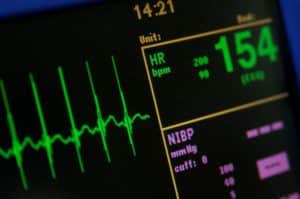 Our Medical Malpractice Attorneys Explain Some Basic Things about Anesthesia Errors and Medical Malpractice
Our Medical Malpractice Attorneys Explain Some Basic Things about Anesthesia Errors and Medical Malpractice
The use of anesthesia is a fundamental part of any surgery. While generally safe, there are times when a patient can be injured because of medical malpractice. Here are some important things you need to know if you were injured by anesthesia malpractice.
What is Anesthesia?
Anesthesia is a general term that is used to describe any number of medications that are used during a surgical procedure for a patient’s comfort and protection. There are many different types of anesthesia. Some affect only a small area of the body for a short period of time. Others, however, can keep a patient unconscious and pain free for hours.
Some common forms of anesthesia, include:
- Local anesthesia, numbs one site on the body, usually through an injection. The patient remains conscious throughout the procedure. Local anesthesia is commonly used by doctors to, for example, suture a laceration.
- Regional anesthesia, an anesthetic agent is injected near nerves that control a larger area, like an arm or leg. These injections are made into spaces surrounding the spinal cord, and work to block motor, sensory, and autonomic system nerves. A common form of regional anesthetic is the epidural steroid injection. This type of anesthesia is often used for women in labor, or for patients with chronic back pain;
- General anesthesia, is usually administered to a patient through an intravenous line and causes the patient to lose consciousness. This type of medication is commonly used, for example, during rotator cuff surgery.
With the exception of local anesthetics, most anesthesia is administered by a specialist known as an Anesthesiologist. These specialists are responsible for administering different medications during surgery, including medications to reduce/eliminate pain, regulate blood pressure and heart rate as well as medications that limit a patient’s memory.
Anesthesiologists are required to maintain records that detail specific and important information covering the use of anesthesia during surgery, including: names of medications administered; amounts of each used; period of time medication was administered over; patient’s response; patient’s vital signs; as well as other important indicators of a patient’s health.
What Constitutes Anesthesia Medical Malpractice?
Like every other speciality in medicine, anesthesiologists are required to perform services in accordance with accepted standards of care. This is a legal concept that requires that the anesthesiologist essentially perform services as would an average anesthesiologist in the community. There are certain common types of anesthesia malpractice, including:
- Damage to the spinal cord during an epidural injection;
- Failure to monitor a patient’s airway properly;
- Failure to conduct a proper history to learn of potential medication allergies;
- Failure to monitor a patient’s blood pressure or oxygen levels; and
- Using the wrong dosage of medication.
These types of errors can cause serious problems, including:
- Nerve damage;
- Respiratory failure;
- Hypoxic brain damage;
- Cardiac arrest;
- Stroke; and
- Death.
To determine whether medical malpractice was committed by your anesthesiologist, the anesthesia record must be reviewed by a competent anesthesiology medical expert. The medical expert will review the complete medical chart, including the details of the anesthesia record looking for evidence that, among other things, the patient was not properly monitored during the procedure. Essentially, the anesthesiologist is the guardian of the patient’s vital signs, charged with the responsibility to react when there is evidence of danger. If there is evidence that the anesthesiologist failed in this obligation, there may be a basis for a medical malpractice claim.
Lawyers24-7.com. | Ask Questions – Get Answers
If you have an questions about your medical malpractice claim, contact our experienced medical malpractice attorneys for a free consultation by email, or calling (800) 762-9300. You can also fill out a case intake form, and one of our attorneys will get right back to you.
You Might Also Be Interested In:









